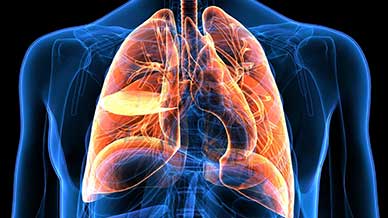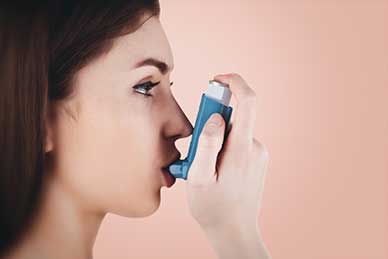With spring and summer approaching, many people will be showing more skin than ever before. Parkas and hats will soon be traded for sundresses and shorts. The switch to warm weather also means that our skin will be exposed to elements such as the sun and wind more than in cold weather months. In addition, our environment is filled with toxic pollutants that can harm our skin and other tissues with repeated exposure. The good news? There are many nutrients for skin health that can help you to look and feel your best this year. In fact, spring is the perfect time for some internal “spring cleaning” to maintain inner health and outer beauty.
Ready for Sunshine?
Exposure to fresh air and sunlight might improve our tans, but over time it can take a toll on the health of our skin. Ultraviolet rays in sunlight damage elastin fibers, which are responsible for keeping our skin firm and tight as well as helping it to heal from bruises and cuts. Exposure to wind and air movement can similarly cause damage to delicate skin fibers. Our skin is also exposed to elements and chemicals that cause oxidation and free radical damage. This damage is minor but can accumulate over time and lead to premature aging if we do not have enough of the nutrients needed to detoxify, replenish, and heal stressed tissues.
Over time, this minor damage can become compounded and have major negative results. People may find that they suffer from dry skin or other discomforts. Skin that is not properly nourished may age faster or even develop diseases such as skin cancer. Skin is the largest organ of our bodies, so our health depends on maintaining it. It is crucial that people take in plenty of nutrients for skin health to support healing and optimal function.
Preventing and Healing Skin Damage from the Inside Out
Many people seek fillers, shots and other procedures to maintain the youthful appearance of their skin. However, these procedures do not treat the root cause of skin damage: An inability to heal from exposure to the sun and other damaging elements. Good nutrition is needed to heal skin from the inside out. In addition, there are many herbs that have been shown to make our skin stronger and more healthy.
Our skin has the ability to heal itself when given the right tools. These tools are available in the form of skin-supporting nutrients as well as herbs known to promote skin rejuvenation. These help skin remain healthy and youthful in a variety of ways, from cleaning out toxins to assisting in the synthesis of proteins like collagen that make up the backbone of healthy skin. Experts recommend taking in plenty of these nutrients for skin health as well as drinking additional water and eating plenty of raw vegetables to support healthy and beautiful skin.
Top Nutrients for Skin Health
 If you want to get your skin ready to be bared, there are several natural ingredients that can help you on your way. Consider taking a supplement that contains some of the following skin-friendly vitamins and herbs:
If you want to get your skin ready to be bared, there are several natural ingredients that can help you on your way. Consider taking a supplement that contains some of the following skin-friendly vitamins and herbs:
- Vitamins C, E, and A act as antioxidants and cofactors for skin renewal.
- Lutein and zeaxanthin both help the body rebuild proteins such as collagen to maintain healthy structure.
- Selenium helps protect skin from harmful ultraviolet rays.
- Alpha lipoic acid can help slow the visible effects of aging.
- Enzyme CoQ10 is a potent antioxidant that fights free radicals.
- Burdock root acts as a powerful antioxidant and anti-inflammatory in skin and liver cells.
- Red clover helps preserve the elasticity of skin and other vital tissues.
- Dandelion root is a popular herb for cleanses and purification.
- Milk thistle can help the liver to remove toxins and waste products from the body.
- Marigold, also called calendula, can assist in healing from cuts, bruises and other damage.
- Horsetail possesses unique anti-wrinkle effects.
- Hyaluronic acid helps to maintain healthy levels of moisture within the skin tissues.
When combined, these natural ingredients can work synergistically to help support skin in appearing youthful and healthy even with exposure to damaging elements such as sun, wind and environmental toxins. If you want to enjoy the warm weather without damaging your skin permanently, consider using a supplement that provides some of all of these natural nutrients for skin health.
While there are many fillers and creams available on the market, the best strategy for maintaining youthful and healthy skin is to maintain good whole body health. There are a variety of scientifically supported nutrients and natural herbs that will help you to look and feel your best. Consider taking a supplement with these nutrients for skin health to keep your skin, hair and other tissues in top form.
 Resveratrol has recently become popular due to its
Resveratrol has recently become popular due to its  How can a simple grape extract help promote healthy respiratory aging and protect against certain lung concerns? The antioxidant effects of resveratrol are believed to be one of its major benefits. In one study, when mice were given inhaled resveratrol, they saw
How can a simple grape extract help promote healthy respiratory aging and protect against certain lung concerns? The antioxidant effects of resveratrol are believed to be one of its major benefits. In one study, when mice were given inhaled resveratrol, they saw  Artificial light is ubiquitous in the modern world. Not only do light bulbs and other artificial lighting sources
Artificial light is ubiquitous in the modern world. Not only do light bulbs and other artificial lighting sources  People who are exposed to high levels of blue light on a regular basis are more likely to suffer from a variety of vision problems. You have probably noticed that you suffer from eye strain after reading from a screen for an extended period of time. However, this is just the beginning. High exposure to blue light has also been found in
People who are exposed to high levels of blue light on a regular basis are more likely to suffer from a variety of vision problems. You have probably noticed that you suffer from eye strain after reading from a screen for an extended period of time. However, this is just the beginning. High exposure to blue light has also been found in  One of the most significant causes of death worldwide is acute respiratory illness. Even healthy people may fall critically ill from these infections, leaving them temporarily or permanently disabled and even threatening their lives. New research suggests that
One of the most significant causes of death worldwide is acute respiratory illness. Even healthy people may fall critically ill from these infections, leaving them temporarily or permanently disabled and even threatening their lives. New research suggests that  Probiotics are the friendly bacteria that colonize healthy digestive tracts and help our bowels work smoothly. However, these bacteria do not live independently in a “bubble.” Like all living creatures, they need food to live. This food is present in natural, more plant-based diets but may not be present in adequate quantities in the typical Western diet.
Probiotics are the friendly bacteria that colonize healthy digestive tracts and help our bowels work smoothly. However, these bacteria do not live independently in a “bubble.” Like all living creatures, they need food to live. This food is present in natural, more plant-based diets but may not be present in adequate quantities in the typical Western diet.
 People with asthma have
People with asthma have  There are several natural supplements that also may be beneficial for people who suffer from asthma and other respiratory concerns. Omega-3 fatty acids are currently the supplements with the most evidence backing them. Research on omega-3 for asthma suggests that these fatty acids have
There are several natural supplements that also may be beneficial for people who suffer from asthma and other respiratory concerns. Omega-3 fatty acids are currently the supplements with the most evidence backing them. Research on omega-3 for asthma suggests that these fatty acids have